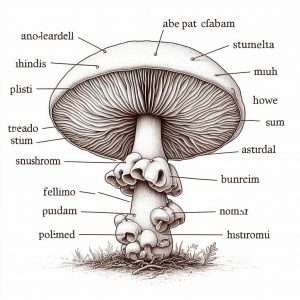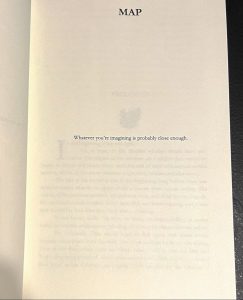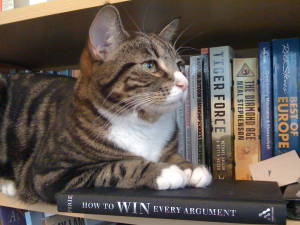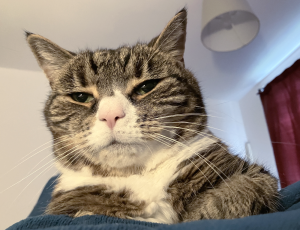Plus Joel Morris’s new book about comedy, Be Funny Or Die.
Dave Cohen’s Build a Sitcom correspondence course started a couple of weeks ago and I am so glad that I signed up for it.
One of the problems with writing anything based on real life is managing the transitions from research to pre-writing to writing. Back in 2015, I had a ‘high concept’ (ie very simple) idea for a book about a global pandemic, exacerbated by government corruption and ineptitude, that would result in an unimaginable death toll. It would be narrated by a young journalist, disgraced and ejected from the London media world after breaking a controversial political story, who finds herself back in South Wales and desperately trying to resuscitate her career. An eco-friendly housing development would hold the key to her long-term survival.
Unfortunately for me, I spent two years reading everything I could about the Spanish Flu, bird flu, vaccine development and manufacturing, PPE and all that. I didn’t start writing until 2017, so I was just coming up to the finishing line when Covid hit, making pretty much everything I’d written obsolete. Had I started writing in 2015 instead and researched what I needed as I went a long, I’d have likely finished it long before the pandemic made it the world’s least publishable manuscript.
My problem back then was that disaster lit was a new genre for me and I was unsure if I had the chops. It was easier to keep researching than to start the challenging task of writing and finding out the hard way whether I was any good at that kind of fiction. Worse, I didn’t have a framework for doing ‘pre-writing’ — the world building, plot and character development work that needs to be in place before you start actually writing the story.
I finished the novel in April 2021, but after a brief and halfhearted attempt at sending it round the agents, some of whom gave me the fastest rejections ever seen in the literary world, I put it to one side and moved on.
I did, however, learn my lesson, which is not to spend too much time doing research. Rather than wasting two years trying to learn everything I could about why pandemics happen, where these diseases come from and how we (used to) prepare for them, I should have just done a bare minimum of research to get my imagination going and then filled in the details as I went along.
In comparison, Fieldwork shot off the starting blocks like Usain Bolt, once we got ethics clearance. I started organising the background research last May and had finished it by the end of August, when I switched focus to get Ada Lovelace Day sorted.
And since picking Fieldwork back up in January, I’ve been focused on learning about comedy and pre-writing: going back over the interview transcripts to pick out the interesting bits of science, reading books, writing random chunks of dialogue, and working on characters and relationships.
I’m now two weeks into Dave’s course and rapidly heading through the preparatory work towards the actual writing bit. Week 1 focused on explaining the basic idea, Week 2 on fleshing that out a bit and answering questions about the ‘sit’ (situation), the relationship between the two main characters, and some plot ideas. Next week is a deeper dive into character, then story, then we get into the actual script writing.
I can’t recommend Dave’s course highly enough. It’s really great fun to be getting into the nitty gritty of the sitcom, and Dave’s feedback is perceptive and invaluable. Plus, it’s given me both a great framework within which to work and a deadline, both of which hugely improve the likelihood that I’ll have a first draft done by mid-June.
Book review: Be Funny Or Die
 I was so excited to get a copy of Joel Morris’s guide to comedy, Be Funny Or Die: How Comedy Works and Why It Matters in March. I’ve read a lot of books about comedy recently and Joel’s book is not just brilliant, it’s unlike anything else out there.
I was so excited to get a copy of Joel Morris’s guide to comedy, Be Funny Or Die: How Comedy Works and Why It Matters in March. I’ve read a lot of books about comedy recently and Joel’s book is not just brilliant, it’s unlike anything else out there.
Where your bog standard book about comedy provides advice on how to write a joke or the structure of a sitcom, Joel tackles the very nature and purpose of laughter and comedic behaviour. Drawing from the work of experts like Prof Sophie Scott (who gave a hilarious talk about laughter at one of the earliest Ada Lovelace Day Live events, back in 2013) and Prof G Neil Martin amongst many, many others, Joel looks at the social purpose of laughter, how it bonds or divides us, and how it make us feel safe even when, perhaps, we aren’t.
My key takeaway from the book was that you can’t write comedy if you don’t know what a joke is for, and you can’t write good comedy if you don’t understand how jokes can go bad, when they’re used to inflame and divide rather than sooth and unite.
This philosophical approach allows the reader to think about comedy at a subatomic level, placing it into the context of human social interactions and connections. Understanding how we use laughter as social glue to indicate that we’re not a threat, or that we aren’t in a threatening situation, (or that we recognise a threat but are frantically pretending everything is just fine, thank you kindly, hahaha), allows us to better manipulate our comedy narratives and stick them together in exactly the right places.
But Joel doesn’t stop with the subatomic fundamentals, he also zooms out to the atomic, to a new Rule of Three.
You might have heard of the Rule of Three already, the idea that we inherently like groups of three things, because that’s “the smallest number that humans perceive as a set”. That might be three examples, three repetitions, or the comedic triad of Set-up, Anticipation and Punchline. That latter rule is often invoked to explain what makes a joke funny, but Joel provides lots of examples that break that rule by using only two of those three — in these cases, set-up and punchline — including:
Clowns’ divorce: custardy battle. — Simon Munnery
I’m not addicted to cocaine. I just like the way it smells. — Richard Pryor
Instead, he suggests, we should look at comedy the same way we look at music, as a matter of “pattern and rhythm”. We all know that comedy is rhythm, or timing, but it isn’t just timing. We are pattern-seeking creatures, constantly looking for patterns to match and constantly surprised when the pattern we think we’ve found turns out to be something else.
These are the atoms of comedy, the new Rule of Three: Construct, Confirm and Confound. (There’s also Confuse, but we don’t want that, that’s like dark matter and makes a joke implode in an unpleasant way.)
- Construct: Create the pattern.
- Confirm: Repeat the pattern.
- Confound: Break the pattern.
Now we have the atoms, we can create molecules, more commonly called ‘jokes’. Joel explains that there are many ways you can link together your Three Cs, and quite often you don’t even need all three of them to get a laugh. Sometimes, Construct and Confirm will do the job or, as in the two examples above, Construct and Confound.
Be Funny Or Die doesn’t go into the synthesis of compounds — which in this now rather tortured analogy would be sitcoms, comedic novels, comedy films etc. But once you understand the building blocks of comedy, all the other books about those things become a lot more useful.
If you’re just starting out as a comedy writer, or you’re just curious about what makes something funny and why we’re hardwired to laugh and make others laugh, then start with Be Funny Or Die. It’ll make everything else make sense. If you’re a seasoned pro, then it’ll give you a new appreciation for the importance of comedy in human society and a deeper understanding of what it is that you’re doing for a job.
Now, I don’t rate books, but if I did, Be Funny Or Die would be like the solar system 1SWASP J093010.78+533859.5 — it’s got five stars.
{ Comments on this entry are closed }











